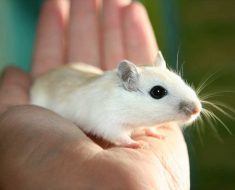Snoring: Doctor explains how to sleep better at night
We use your sign-up to provide content in ways you’ve consented to and to improve our understanding of you. This may include adverts from us and 3rd parties based on our understanding. You can unsubscribe at any time. More info
Disrupted sleep can have a ripple effect across all aspects of our wellbeing, from our cognitive health to our mood. One ingredient, however, may help correct this by calming the nervous system.
The reiki mushroom has a long history of use, particularly in Asia where it is used for its calming effects.
Chinese and Japanese herbalists often recommend the mushroom to those who have difficulty sleeping.
Some scientists believe the fungus’s sleep-inducing power is down to its calming effect on the nervous system, which helps relax the muscles.
READ MORE: How to sleep: The three ‘biggest mistakes’ people make when trying to fall asleep – expert

Most evidence shows reiki mushrooms have a positive effect on the initial stages of sleep.
In one study conducted on rodents, researchers found the mushroom had hypnotic effects, helping improve the overall quality of sleep.
Researchers concluded: “These results suggest that [reiki mushrooms] have hypnotic effects in freely moving rats.
“The mechanism by which the extract promoted sleep remains unclear.”
One other three-day study, published in the Pharmacology Biochemistry and Behaviour, determined that consumption of reishi mushroom significantly increased total sleep time and non-rapid eye movement sleep – the stage of sleep you enter shortly after falling asleep.
The dose administered to test subjects was 80 mg/kg.
Researchers observed an increase in levels of tumour necrosis factor-alpha – a key substance that regulates sleep/wake cycles.

Although one study did not see marked improvements in REM sleep, it found that reishi extract “decreased sleep latency, increased sleeping time, non-REM sleep time and light sleep time”.
By improving sleep latency – a term for the time taken to fall asleep – reishi mushrooms might improve the body’s natural biorhythm.
This means the participants fell asleep sooner and slept longer after three days of use.
The study’s subjects also showed decreased anxious behaviours, such as fidgeting.

Further studies on patients with neurasthenia – a condition characterised by fatigue, headache and irritability, saw significant improvements in energy levels after eight weeks of use.
Unlike sedatives or melatonin supplements, some sources state reishi does not induce drowsiness.
The mushroom, which grows in the dimly lit forests, has long been an important part of Chinese medicine.
Some health bodies recommend taking it in the form of a supplement each evening before bed.
Source: Read Full Article





